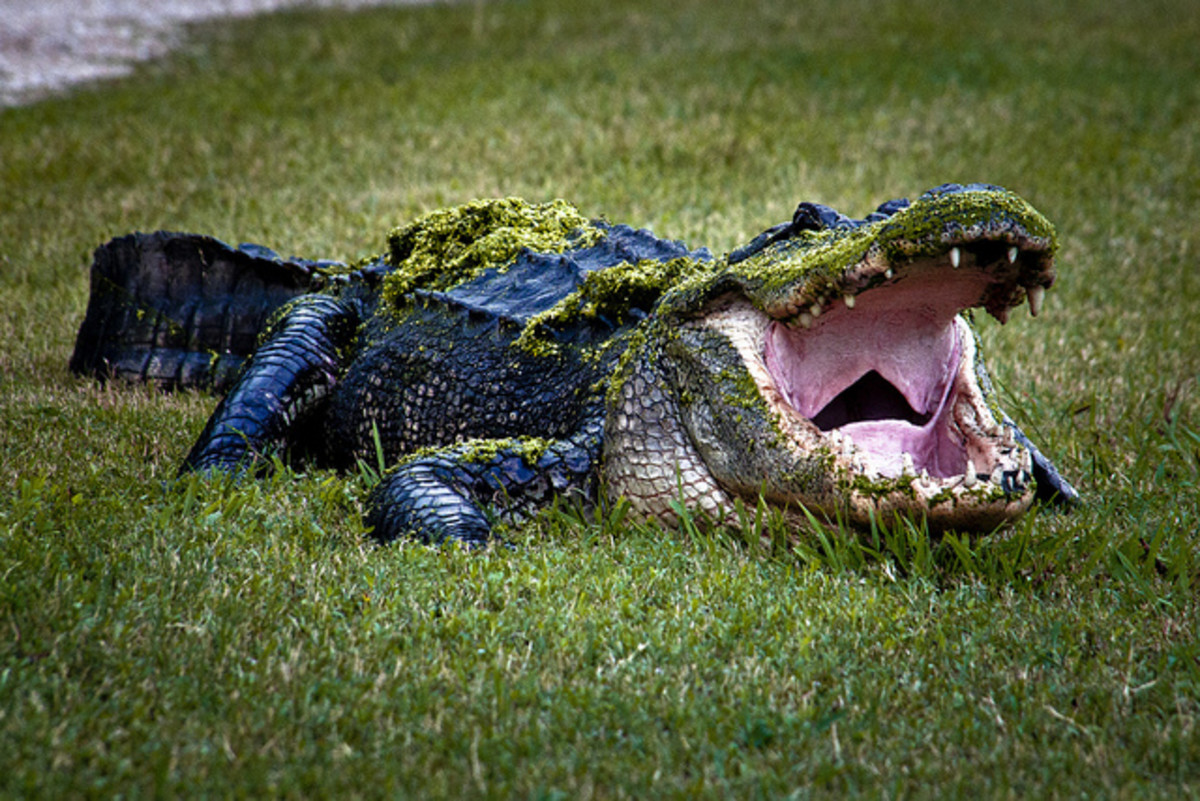Tips to Avoid Being Attacked by an Alligator

Alligators represent some of the longest-existing predators on the planet, and their primordial brains tend to focus on instinct rather than reason. They do not pose a huge threat to adult unless some fundamental rules and guidelines are broken. However, small children along with common household pets are particularly at risk due to their small size. Here are some basic things to know about alligators and what to do avoid being attacked.
The 30 Foot Rule

The general consensus is that people or pets should keep at least 30 feet of distance between themselves and alligators. They are surprisingly fast and powerful swimmers, and it only takes a leap and couple of lashes of their powerful tail to propel them great distances. Being further than 30 feet away allows an opportunity for escape and a chance to work up to a speed that can outrun an alligator. Keep in mind that alligators can move pretty fast on land, and they have been known to climb trees as well.
Swimming and Hunting
Alligators prefer fresh or brackish water (fresh and salt water mixed together), and they are primarily nocturnal creatures. They generally do not like to exert too much energy during the day, which is why they are commonly found basking near the shoreline with their mouths open. They are not laying in wait, hoping to catch an easy meal. They use this position to cool their bodies, and keeping their mouths open helps them to exchange heat for cooler air since they do not sweat.

However, they are ferocious hunters, defenders of their territory and protective of their young. They are also not the smartest creatures on the planet, and it doesn’t take a lot to provoke an attack. Avoid swimming at night, keep pets indoors and never let your kids go swimming alone, even if they are just taking a dip in a pool. Alligators are famous for showing up in back yards and pools across the American south, and the last thing you want is to make the alligator feel threatened, cornered or enticed by the prospect of a quick lunch.
Avoid Alligators

The best and most common advice is to avoid alligators altogether. Don’t buy into the reality TV shows that glamorize their capture and hunting. Doing so is just asking for trouble, and even the most experienced alligator hunters have been known to suffer serious injuries and even death from getting too close or letting their guard down at the wrong time.
Never feed alligators, even if it seems as though food is a good way to entice them to move to another location. Feeding will only encourage their return as it sends a signal that a particular area is a good place to stalk and hunt prey. Be careful not to dispose of food scraps in waters in which alligators are present for the same reason, especially in areas where alligators and people are known to swim together. This will only teach alligators to associate people with food, and they will frequent those areas with more regularity.
Keep in mind that interacting with alligators is often a crime and strictly enforced, especially in communities where active alligator control measures are in place. Keeping a safe distance, ignoring their presence and contacting authorities are the best ways to avoid having problems. Don’t attempt to wrestle, corral or otherwise capture an alligator under any circumstances. If you see one, get as far away as possible and allow animal control professionals to do their job. The best way to leave the area is to walk backwards while looking at the alligator. Grab a large stick or other long object to enlarge your profile and to provide a buffer between you and the gator if it decides to attack.
If worse comes to worse and you find yourself in a life or death situation with an alligator, consider shooting them in the head as your first line of defense. If that doesn’t work, try to maneuver yourself so that you can get your hands around its mouth and keep it closed. The strongest muscles in the alligator’s mouth are for chomping down not opening up. It doesn’t take a lot of force to keep an alligator’s mouth closed before taping it shut. However, engaging with an alligator can be a very risky proposition due to their forceful tail, sharp claws and ability to exert an enormous amount of pressure as they clamp down on their prey.
Fortunately, alligator attacks on people are rare in the United States, and pets end up bearing the brunt of their ferocity. Chances are that if you don’t mess with an alligator, they won’t mess with you, and following these guidelines can help to prevent a tragedy from occurring.
